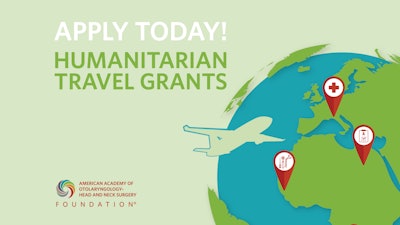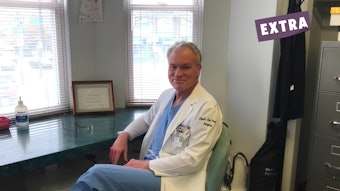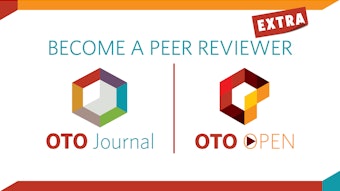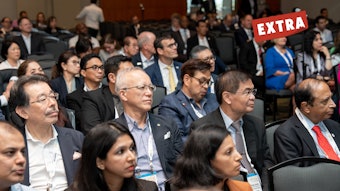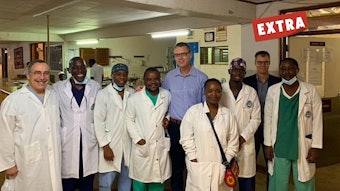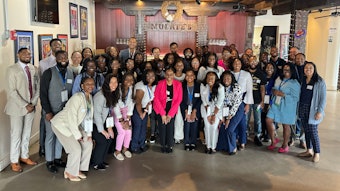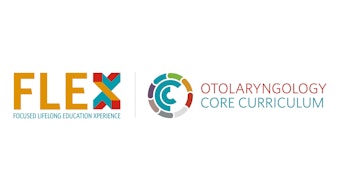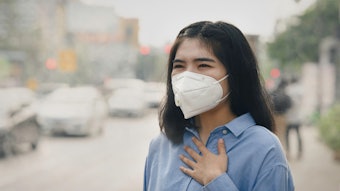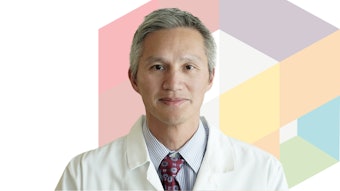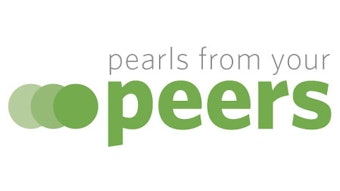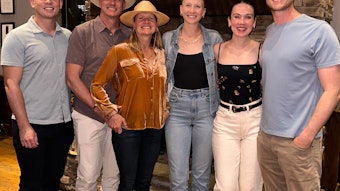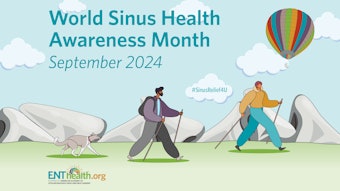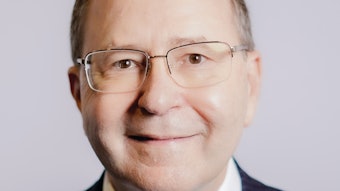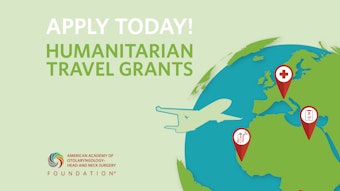Humanitarian Travel Grant Report: Guatemala City
Medical Missions for Children facilitates cleft care surgeries and educational exchanges in underserved regions across the world.
Nneoma S. Wamkpah, MD, MSCI
In June 2024, I joined John J. Chi, MD, of Washington University, Chris Viozzi, MD, of the Mayo Clinic, and Zahrah M. Taufique, MD, and Robert F. Ward, MD, of New York University, on a surgical mission for five days in Guatemala City. The mission was hosted by dentist Charles Badaoui, DDS, and Medical Missions for Children (MMFC).
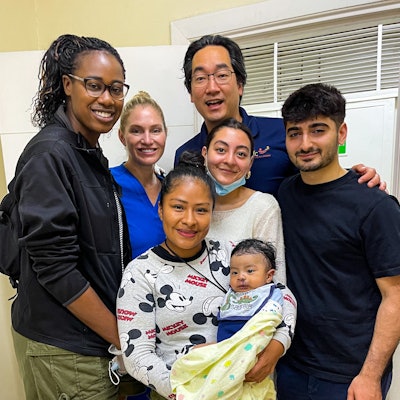 (Left to right) The author, Nneoma Wamkpah, MD, MSCI, Ashley Hilmes NP, John J. Chi, MD, and two volunteers visit with a patient after cleft lip repair in the postoperative clinic.
(Left to right) The author, Nneoma Wamkpah, MD, MSCI, Ashley Hilmes NP, John J. Chi, MD, and two volunteers visit with a patient after cleft lip repair in the postoperative clinic.
Before the trip, we met our patients and their local physicians through a telehealth screening call. This streamlined the preoperative visit on our first day, where final health clearances were performed, and the operating room (OR) schedule was set for the week. Approximately 36 surgeries encompassing the full spectrum of cleft care (lip repair, palate repair, alveolar bone graft, and septorhinoplasty) were performed by the team. There was bidirectional educational exchange between our team and Guatemalan medical students and nurses in the OR, as well as among surgeons and residents from the different institutions. Our comradery blossomed through team dinners and bonding activities that capped off each day.
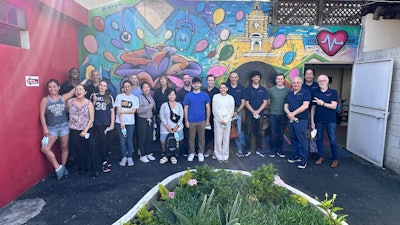 The MMFC and Moore Center staff gather for a picture after completing the preoperative clinic visits.
The MMFC and Moore Center staff gather for a picture after completing the preoperative clinic visits.
I was struck by the gratitude of our patients’ parents, reflected in heartfelt thank-you cards made by the children. Our surgeries immediately affected the patients’ feeding and speech. However, the procedures also influenced their social acceptance and integration, impacting the children’s lives beyond their acute medical needs. As one nurse said, “You can help one person [by impacting] their speech and help them find a job.”
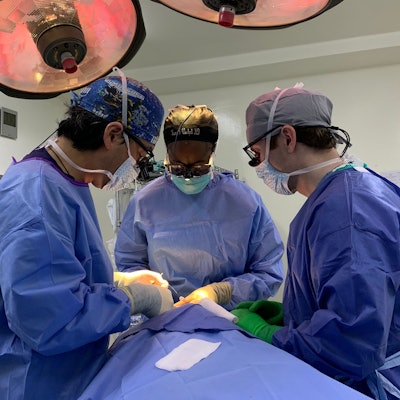 (Left to right) Dr. Chi, Dr. Wamkpah, and Kale McMillan, MD, perform a rhinoplasty and lip scar revision.
(Left to right) Dr. Chi, Dr. Wamkpah, and Kale McMillan, MD, perform a rhinoplasty and lip scar revision.
I am incredibly thankful to the AAO-HNSF for its support via the Humanitarian Travel Grants Program, to the MMFC for their charitable work around the globe, and for welcoming me to participate in this mission, and to the Moore Center for their dedication to patient care and safety.
